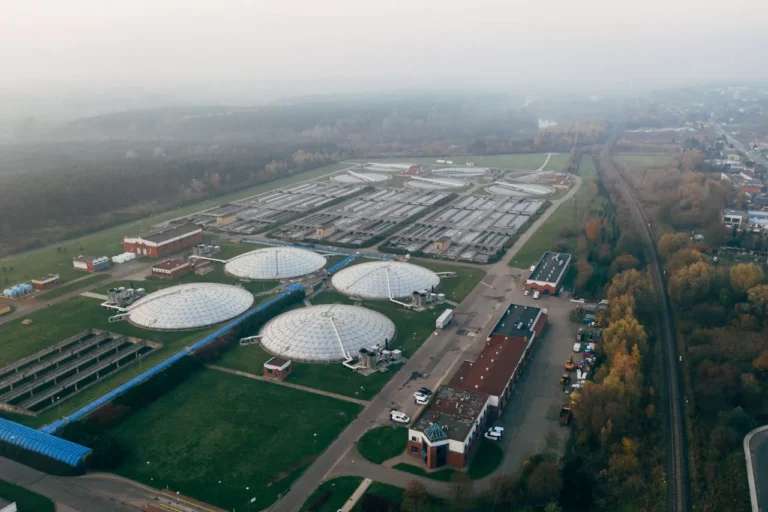
Immuto Scientific today announced the closing of an oversubscribed $8 million Seed 2 financing round alongside a new drug discovery collaboration with Daiichi Sankyo, a leading global pharmaceutical company. The funding and collaboration represent significant milestones for Immuto as it scales its AI-enabled structural surfaceomics platform, a novel approach designed to uncover previously invisible therapeutic targets.
With the new capital, Immuto will accelerate its internal oncology pipeline toward IND-enabling studies, while also expanding its platform into new therapeutic areas such as immunology and inflammation.
Tackling the Core Challenge in Drug Discovery
Immuto’s work is rooted in addressing a fundamental bottleneck in modern drug development: the scarcity of truly novel, disease-specific targets.
“The greatest challenge in drug discovery today is not the lack of modalities; it’s the shortage of truly novel, disease-specific targets,” explained Faraz A. Choudhury, Ph.D., co-founder and CEO of Immuto Scientific. “The vast majority of drug targets overlap with healthy tissues, which drives toxicity and narrow therapeutic windows. Our data-driven platform reveals a hidden dimension of the cell surfaceome that conventional omics approaches cannot see, opening new therapeutic opportunities across cancer and other diseases.”
By mapping disease-specific structural variations on the cell surface, Immuto is building a pipeline of potential first-in-class therapies that promise greater selectivity and improved safety compared to existing approaches.
Strategic Collaboration with Daiichi Sankyo
Immuto’s first major drug discovery partnership will be with Daiichi Sankyo Research Institute in Boston, a hub of oncology and antibody discovery. The collaboration will apply Immuto’s structural surfaceomics platform to solid tumor research, with the goal of identifying novel targets and developing antibodies against them.
Under the terms of the agreement, Daiichi Sankyo retains an option to license any resulting assets from the collaboration. While financial details were not disclosed, the deal underscores the pharmaceutical industry’s recognition of the untapped potential of cell-surface structural biology in therapeutic development.
Dan Benjamin, Chief Technology Officer of Immuto, commented on the significance of the collaboration:
“Our collaboration with Daiichi Sankyo underscores how exploring the structural conformations of cell-surface proteins represents an untapped frontier in drug discovery. By targeting cancer-specific surface structures, we have the opportunity to develop first-in-class therapies with truly differentiated precision and selectivity.”
Inside Immuto’s Structural Surfaceomics Platform
Immuto’s platform combines high-resolution structural proteomics, live-cell structural assessments, and AI-driven analytics to systematically interrogate thousands of surface proteins in parallel. Unlike conventional omics approaches that focus primarily on expression levels, structural surfaceomics assesses conformational changes in protein structures that are often unique to diseased states.
Key features of the platform include:
- Structural epitope mapping: Identification of highly disease-specific epitopes that serve as targets for novel therapies.
- AI-enabled analytics: Integration of machine learning to analyze massive datasets of protein structures and conformations, highlighting subtle but critical differences across disease and healthy states.
- Patient-derived sample analysis: The ability to study heterogeneous clinical samples directly, improving translational relevance and reducing the gap between preclinical models and human disease.
By revealing conformational differences invisible to other omics technologies, the platform opens the door to disease-specific targets ideally suited for modalities such as antibodies, CAR-T cells, or antibody-drug conjugates (ADCs).
Immuto has already demonstrated the ability to identify novel targets in multiple tumor types and is currently advancing its lead program through in vivo validation studies.
Differentiation in a Crowded Field
While many companies focus on drug discovery through genomics, transcriptomics, or traditional proteomics, Immuto’s unique contribution lies in structural proteomics at the cell surface. This level of resolution allows the company to identify targets with exceptional specificity—potentially solving one of the most persistent problems in oncology: balancing potency against off-target toxicity.
Investors see this as a transformative leap.
Spencer Maughan, Founder and Managing Partner at DYDX, the fund that led the financing, noted:
“Immuto Scientific’s approach is highly differentiated, creating and leveraging data that no other group in the world has. The company is driving a step-change in predictive protein structure based on its data and AI engine. This opens a new world of targets for much-needed therapies with exceptional specificity. We are excited to be partnering with Immuto and believe the company will be a key part of the new era of data-driven drug discovery.”
Financing to Fuel Growth
The $8 million Seed 2 round was led by DYDX, a venture fund that invests in companies capitalizing on the “Data SuperCycle”—the rapid growth and utilization of data to transform industries. Additional participants included WARF Ventures, Gravity Fund, Great Oaks Venture Capital, and other investors.
The oversubscription of the round reflects strong investor confidence in Immuto’s potential to define a new category of target discovery and to generate a pipeline of differentiated assets.
Proceeds will support:
- Advancement of Immuto’s oncology pipeline toward IND-enabling studies.
- Expansion into immunology and inflammation, areas where surface-specific targets could also transform therapeutic outcomes.
- Further development of the structural surfaceomics platform, including scaling analytics capacity and expanding partnerships.
Unlocking a Hidden Dimension of Biology
The “surfaceome”—the complete set of proteins expressed on the cell surface—represents a critical interface between cells and their environment. Many of the most successful drug classes in history, including monoclonal antibodies and checkpoint inhibitors, target surface proteins. Yet until now, systematic exploration of structural differences at the surfaceome level has been limited by technology.
Immuto’s ability to map conformational changes directly in live cells gives it access to a hidden layer of biology that could drive the next wave of precision medicines.
Looking Ahead
With new funding, a growing internal pipeline, and a collaboration with Daiichi Sankyo, Immuto is positioned at the forefront of a new era in drug discovery. By unlocking novel, disease-specific targets invisible to conventional approaches, the company aims to enable first-in-class therapies with improved safety and efficacy profiles.
As the field of structural biology converges with AI, machine learning, and high-resolution proteomics, Immuto’s platform illustrates how cutting-edge science can translate into meaningful therapeutic advances.
CEO Faraz Choudhury summarized the company’s mission:
“Our vision is to redefine what is possible in drug discovery by focusing on disease-specific structures that no one else can see. With the support of our investors and partners like Daiichi Sankyo, we are closer than ever to delivering transformative therapies to patients in need.”
About Immuto Scientific
Immuto Scientific is redefining the landscape of target discovery by revealing the structural fingerprints of disease. Through its therapeutic discovery arm, Immuto is discovering and developing first‑in‑class therapeutics that target structural changes in cell‑surface proteins unique to disease. Powered by its AI‑enabled target discovery and epitope‑identification platforms, Immuto discovers novel, targetable surface protein conformations (SPCs) from patient‑derived samples, driving the development of safer, more precise therapies. With its disease‑agnostic platform, Immuto is building a differentiated pipeline with an initial focus on oncology. For more information, visit www.immutotherapeutics.com.







